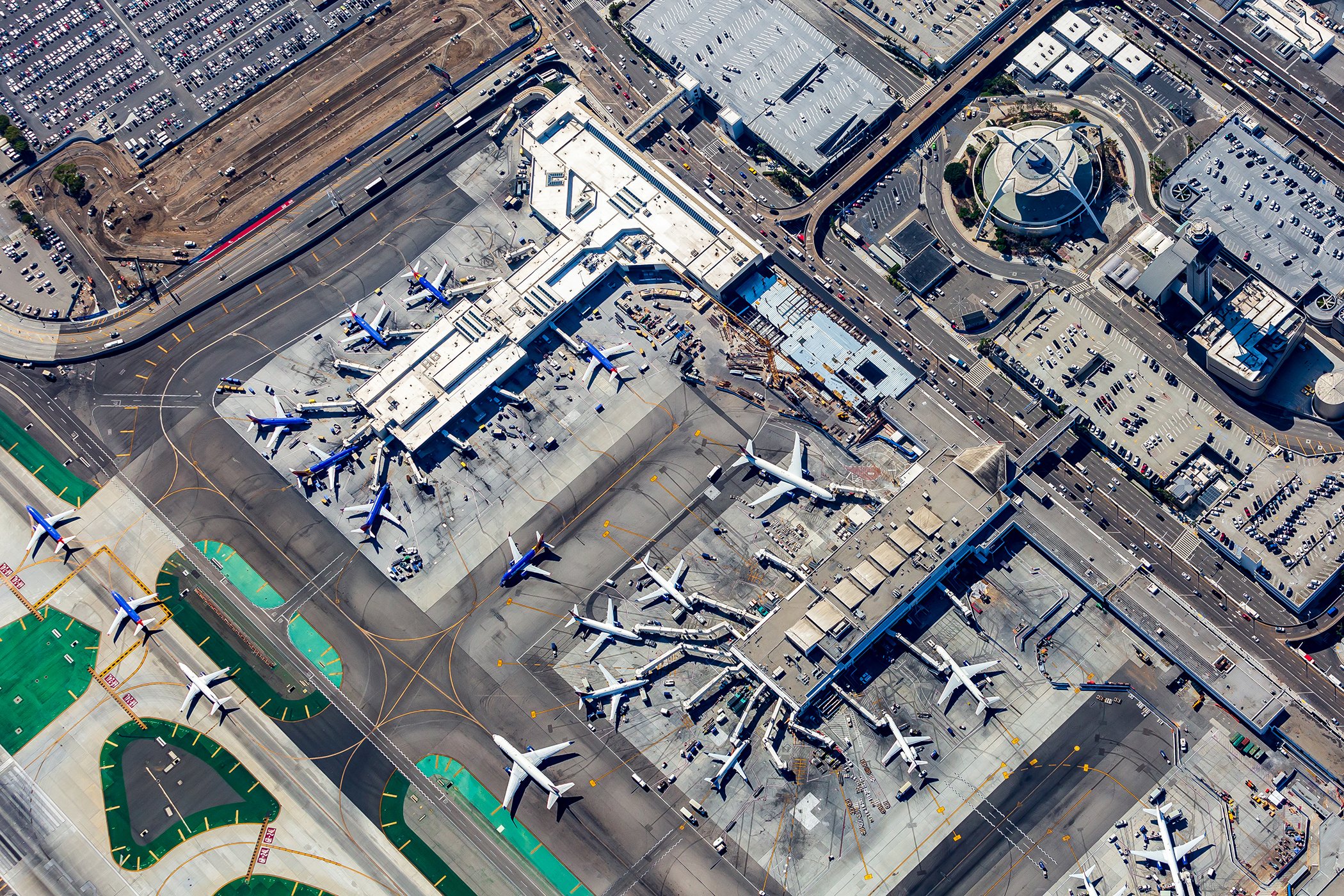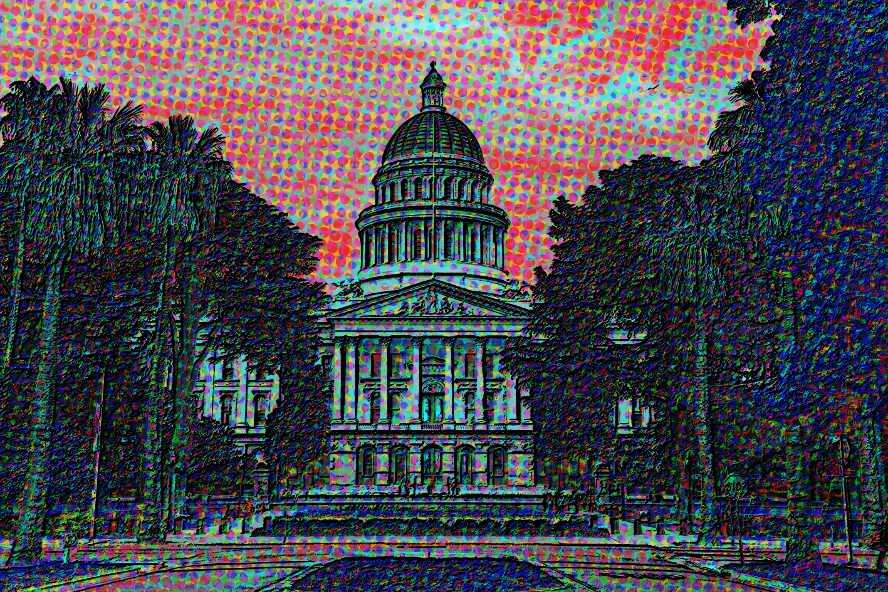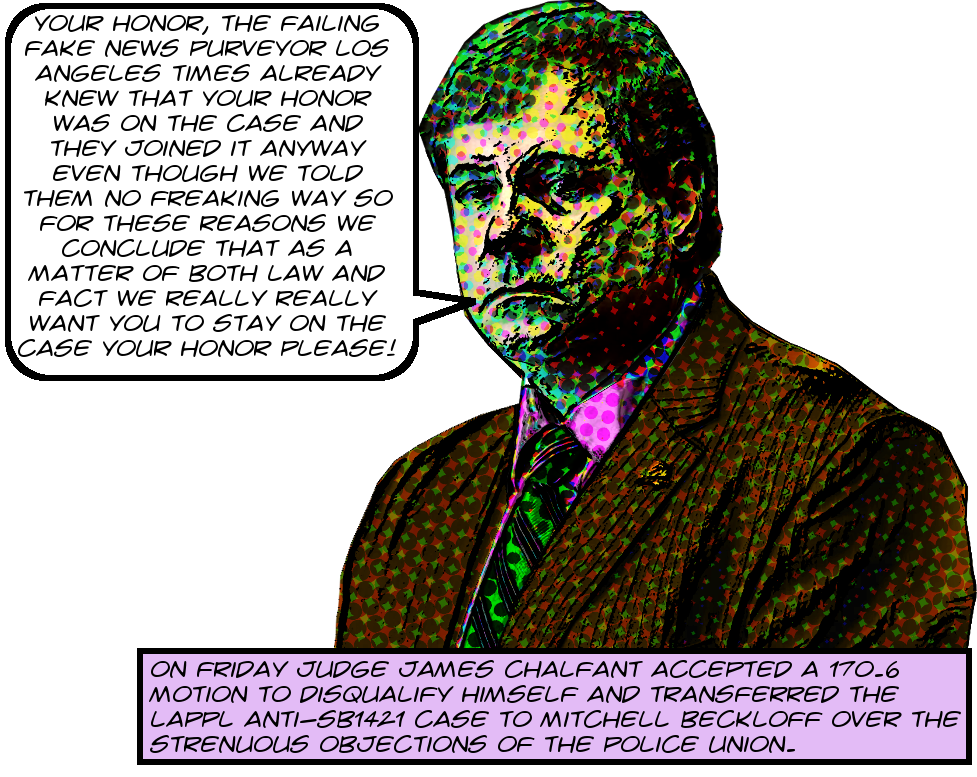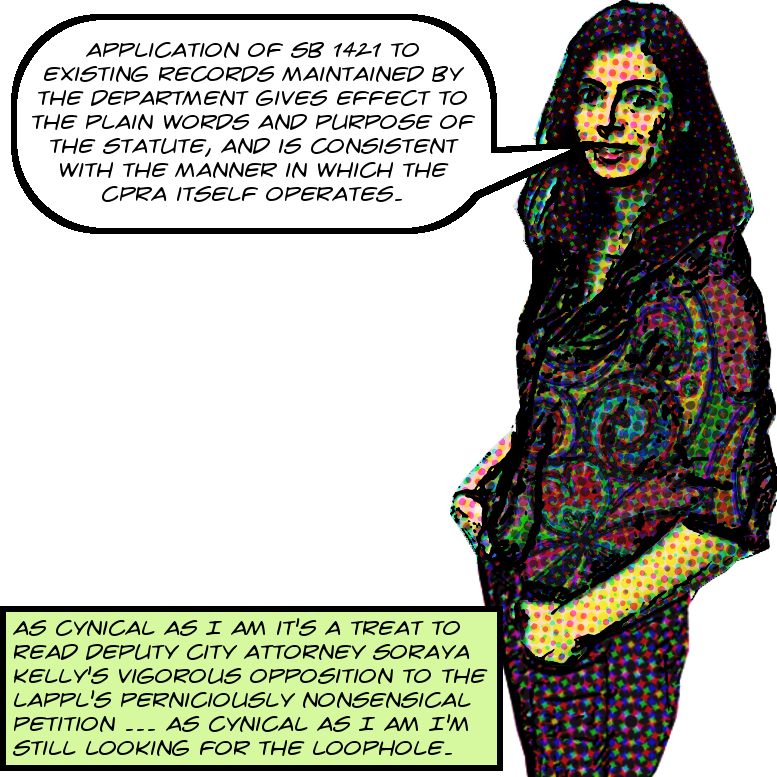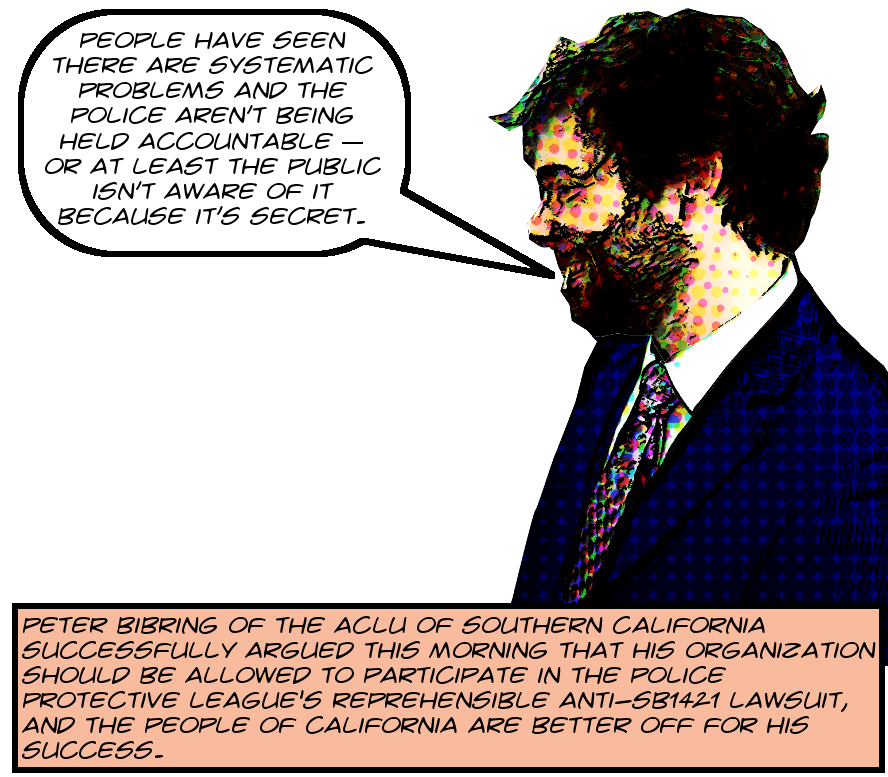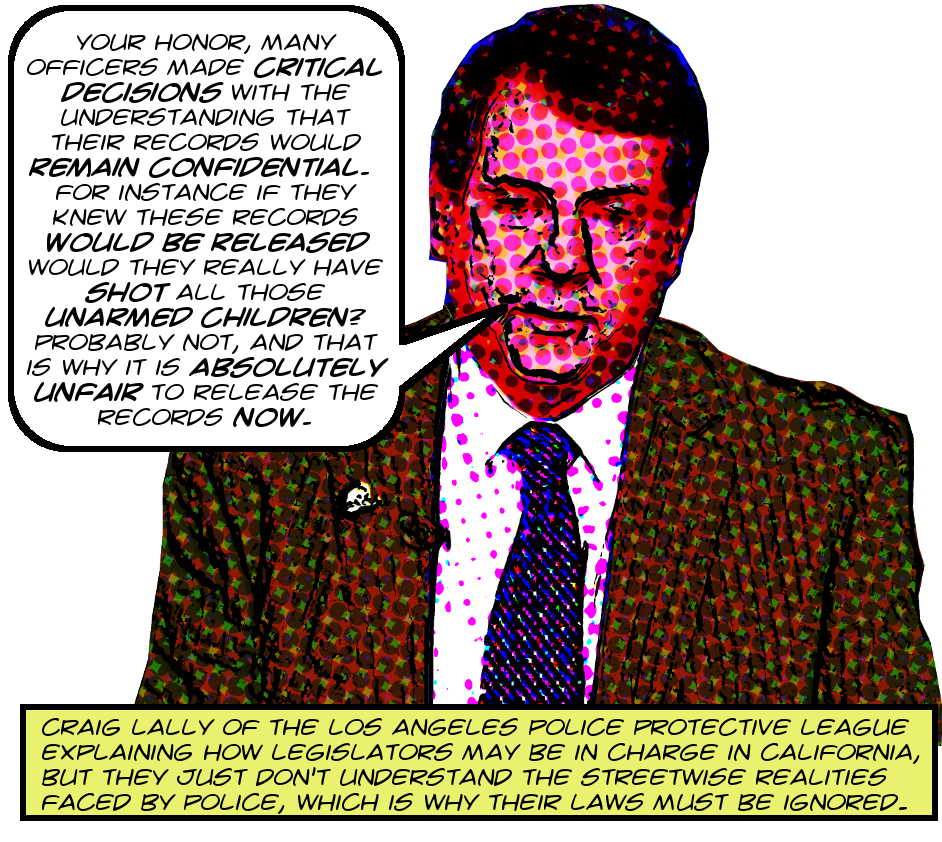Police discipline records are notoriously top secret in California. Since forever until 2019, when Senator Nancy Skinner‘s monumental SB1421 took effect, they were uniformly exempt from the California Public Records Act. Even now, though, only records relating to the most egregious misconduct can be released, and only when the officer is found guilty.1
But the huge majority of complained-against officers, at least in Los Angeles,2 are exonerated and most police misconduct isn’t covered by SB1421, which leaves most police disciplinary records completely off limits, and even the release of these very limited SB1421 records was and is highly contested. The
In 2019 police statewide fought SB1421 implementation in court, they fought to stop its retroactive application, and are still slow-walking and otherwise obstructing access to the newly available records.3 Releasing records of disciplinary procedures that end in exoneration isn’t even being discussed. But it certainly ought to be, not least because such secrecy really reinforces mistrust of the police.
The most obvious reason for police to be so vehemently against release is that proceedings ending in exoneration are empty performances with predetermined outcomes. If they’re not scripted, the thinking goes, then why not release the records? If privacy is the issue then why not release public versions, as LAPD does for use of force cases? As Peter Bibring of the ACLU says, “That lack of transparency prevents the public from having any faith that the process is working.”
What Bibring doesn’t say is that if the process isn’t working but the public still has faith in it, transparency is likely to destroy even that. Let’s find out! I recently obtained copies of confidential LAPD disciplinary records from a case where the subject was ultimately exonerated. Even though the offense was relatively minor, involving the officer’s use of a monkey emoji in a Facebook post about Mike Tyson, these records provide unprecedented insight into LAPD’s complaint handling procedures.
It started with a July 2018 complaint, called in to LAPD by a citizen, about the contents of Officer Nicholas Owens’s4 Facebook page.5 These two records reveal an unprecedented6 level of detail about LAPD disciplinary proceedings in much, much more ordinary cases than are covered by SB1421. I have never seen anything like them. Here they are:
Continue reading LAPD Disciplinary Procedures Are Notoriously Secretive — But I Recently Obtained Records About An Officer — Nicholas Owens — Accused Of Using A Monkey Emoji To Comment On A Video About Mike Tyson And Subsequently Exonerated By A Board Of Rights — Which Reveal Unprecedented Information — Including The Board’s Detailed Rationale For Its Findings — Which Doesn’t Create Much Confidence In The Validity Of The Process — Like E.g. One Reason They Exonerated The Guy Is That None Of His Extensive Sensitivity Training Specifically Covered Emoji-Based Racism — It Sure Looks Like LAPD’s Disciplinary System Is Performance Rather Than Substantial Process — Remember This Whenever Politicians Or Cops Pass Off Disciplinary Procedures As Some Kind Of Police Reform — The Police Run The Process — And Can Make It Look Genuine As Long As The Proceedings Are Secret — So Let’s Open Them Up!

